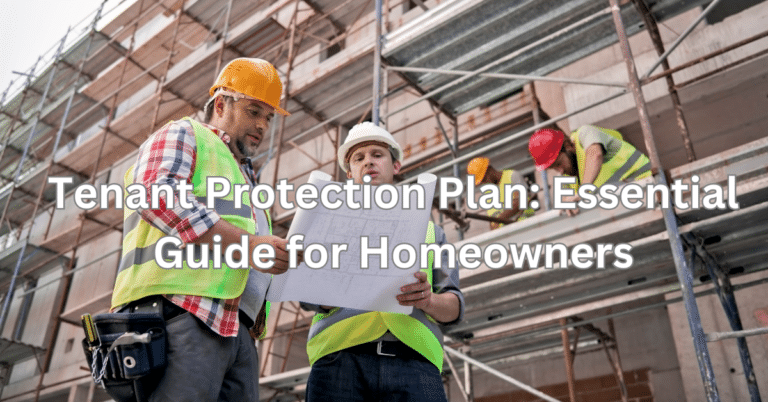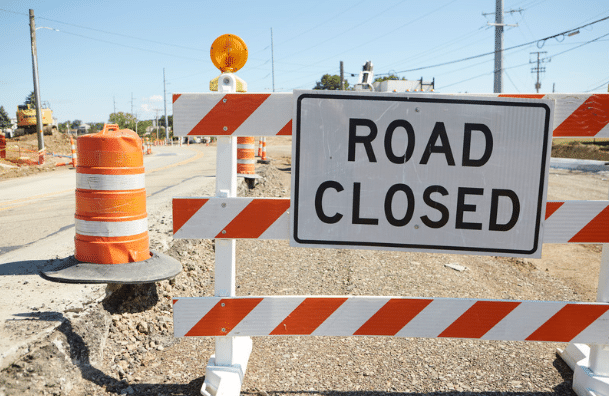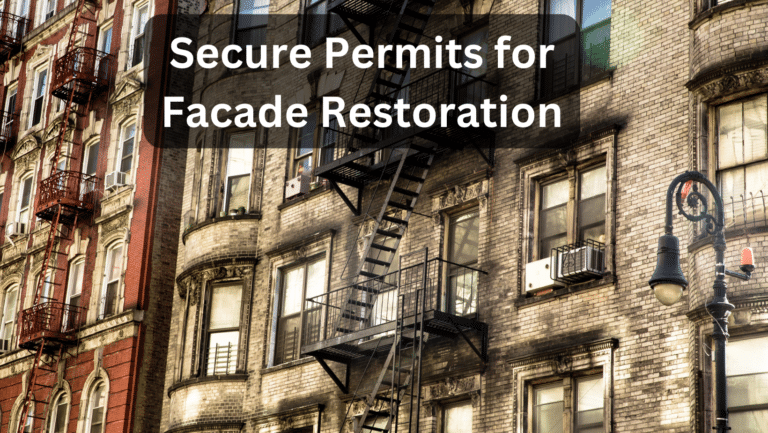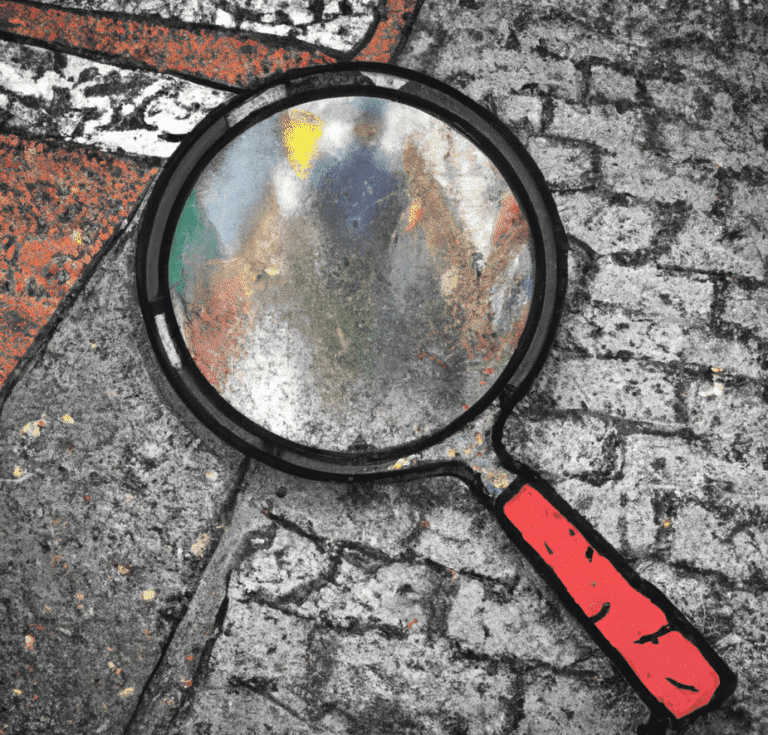Last Updated on January 23, 2025 by Jeffrey Calderon

Navigating NYC Local Laws: Permit Types and Useful Compliance Tips
When it comes to navigating the complex world of NYC local laws, understanding the regulations and requirements is essential for both homeowners and contractors.
The Big Apple has put in place a range of local laws to guarantee the security, sustainability, and availability of its structures.
In this blog post, we will delve into mandatory compliance with these local laws and explore a list of specific Department of Buildings (DOB) regulations that impact construction projects in New York City.
Furthermore, we will discuss various permit types required for different construction activities as well as building code requirements that must be adhered to throughout all stages of a project.
By familiarizing yourself with NYC local laws and their implications on your property or contracting work, you can avoid potential fines or violations while ensuring safe practices are followed within the bustling metropolis.
Understanding NYC Local Laws
New York City: bustling streets, towering skyscrapers, and vibrant culture, but also a complex web of local laws governing everything from construction to public safety.
As a homeowner or contractor in NYC, you must familiarize yourself with these local laws to avoid fines and ensure safety.
A) Importance of Local Laws
Adhering to regulations during planning and execution safeguards against accidents caused by faulty workmanship.
B) Governing Bodies
Enforcing rules across NYC requires collaboration between multiple governing bodies including the DOB, LPC, and DOT.
C) Local Law Examples
Notable examples include Local Law 11 (FISP), Local Law 26 (photoluminescent exit path markings), and Local Law 87 (energy audits).
Understanding NYC’s local laws is crucial for homeowners and contractors alike to avoid fines or delays and ensure safety standards are met.
Mandatory Compliance
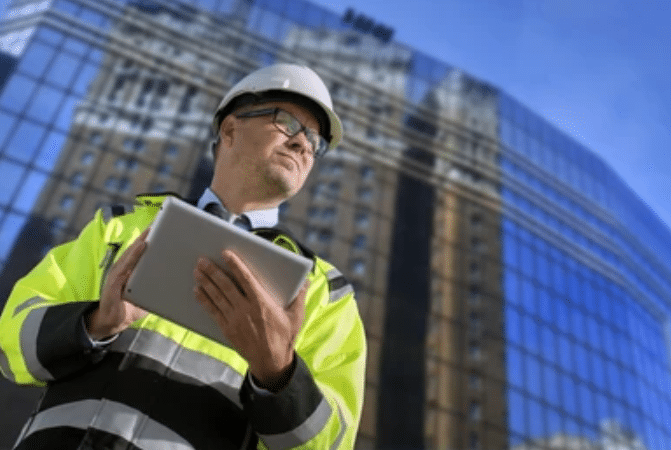
Adhering to NYC local laws is crucial for safety and legal reasons during construction projects.
A. The Role of NYC Local Laws in Construction Safety
NYC local laws prioritize construction safety by setting standards for fire protection systems, structural stability, electrical installations, plumbing systems, and accessibility features for people with disabilities.
Regular inspections by qualified professionals ensure compliance with all applicable codes and requirements.
B. Consequences of Non-Compliance
Non-adherence to obligatory construction regulations may incur hefty fines, criminal prosecution, project postponement and insurance complications.
C. Ensuring Compliance through Proper Permitting
Obtaining necessary permits before starting any construction project is essential to ensure compliance with NYC local laws.
The permitting process requires detailed plans, specifications, and other documentation that demonstrate adherence to applicable codes and regulations.
Proper permits also ensure regular inspections throughout the project’s duration, maintaining safety standards on-site.
In conclusion, complying with NYC local laws is vital for safety and avoiding costly consequences associated with non-compliance.
NYC DOB Local Laws You Need to Know

As a homeowner or contractor in the Big Apple, it is essential to remain informed of the rules and regulations enforced by NYC DOB for maintaining safety, productivity, and environmental friendliness during construction projects.
Local Law 11/98: Facade Inspection Safety Program (FISP)
Building owners of tall structures must hire qualified professionals to perform facade inspections every five years to ensure structural integrity and safety.
Local Law 26/04: Photoluminescent Exit Path Markings
All commercial office buildings with occupied floors more than seventy-five feet above street level must have photoluminescent exit path markings to ensure safe evacuation in emergencies.
Local Law 87/09: Energy Audits & Retro-Commissioning
Large buildings must undergo periodic energy audits and retro-commissioning to promote energy efficiency and reduce greenhouse gas emissions.
Local Law 196/17: Construction Site Safety Training (SST)
Construction workers must complete a minimum number of hours in site safety training courses to improve safety on construction sites.
Local Law 152/16: Periodic Gas Piping Inspections
Exposed gas piping systems in buildings must undergo periodic inspections to prevent gas-related incidents.
Additional NYC DOB Local Laws:
- Local Law 33/18: Building Energy Efficiency Rating Labels – Requires display of energy efficiency ratings for certain buildings.
- Local Law 38/15: Carbon Monoxide Detector Requirements – Establishes standards for carbon monoxide detectors in commercial spaces.
- Local Law 77/15: Cooling Tower Maintenance – Mandates regular maintenance and inspection requirements for cooling towers to prevent Legionnaires’ disease outbreaks.
- Local Law 97/19: Building Emissions Limits – Sets greenhouse gas emissions limits for large buildings and establishes penalties for non-compliance.
By adhering to these regulations, you can contribute to the safety, efficiency, and sustainability of New York City’s built environment.
Permit Types
Construction projects in NYC require various permits to ensure safety and compliance with building codes.
Construction Permits
- New Building (NB) Permits: required for new construction projects.
- Alteration Type 1 (Alt-1) Permits: necessary for significant changes to an existing building’s use or structure.
- Alteration Type 2 (Alt-2) Permits: cover smaller-scale renovations.
Plumbing & Electrical Work Permits
Separate permits are required for plumbing and electrical work.
Demolition & Excavation Permits
Demolition permits are necessary for tearing down structures, while excavation permits are required for digging or removing soil.
Sidewalk & Street Permits
Additional permits from the NYC Department of Transportation are needed for projects affecting public spaces.
Special Event Permits
Hosting an event during construction requires a special event permit.
Filing Process & Fees
- Permit applications can be filed online or in person.
- Fees vary based on square footage and estimated cost of work.
- Expedited review options are available for an additional fee.
Understanding permit requirements early on in the planning process is crucial to avoid fines and delays.
Building Code Requirements

Don’t be a code violator. Learn about NYC’s building code requirements to ensure your construction project is safe and up to city standards.
A. Structural Safety
NYC Construction Codes require buildings to meet specific structural safety standards to protect occupants from potential hazards like earthquakes or high winds.
B. Fire Protection Systems
Protect your property and loved ones with strict fire protection system requirements, including smoke detectors and sprinkler systems for commercial properties.
C. Energy Efficiency Standards
- Local Law 97: Reduce greenhouse gas emissions with carbon intensity limits and upgrades to HVAC systems or solar panels.
- New York State Energy Conservation Construction Code (NYSECCC): Meet minimum energy efficiency standards for new constructions and renovations.
D. Accessibility Requirements
Ensure equal access for all individuals with ADA Standards for Accessible Design, including ramps, widened doorways, and accessible restrooms.
E. Construction Site Safety Regulations
Protect workers and the public with strict safety protocols, including Construction Superintendent permits, proper scaffolding systems, and noise control measures.
Filing Permits & Inspections
Don’t forget to obtain necessary permits from the Department of Buildings and schedule periodic inspections throughout your project’s duration.
FAQs in Relation to Nyc Local Laws
Where to Find Local Laws in NYC?
You can find New York City’s local laws on the NYC Department of Buildings website which provides information about building code requirements, permit types, and mandatory compliance for homeowners and contractors.
What is Local Law 47 in NYC?
Local Law 47 requires owners of certain buildings to install photoelectric smoke detectors to improve fire safety in residential units built or altered after January 1, 2014. More details are available on the NYC DOB Local Law 47 summary page.
What is Local Law 59 in NYC?
Local Law 59 mandates construction site safety training requirements for workers employed at specific sites within NYC, requiring them to complete a minimum number of hours of approved site safety training courses. Visit the DOB’s Construction Safety Training Requirements page for more information.
What is Local Law 18 in NYC?
Local Law 18 pertains to energy efficiency standards for new buildings and major renovations, establishing stricter energy conservation measures aligned with state-level codes like NYCECC. More information can be found on the NYC DOB Energy Conservation Code page.
Conclusion
Don’t get caught in a legal mess – know your NYC local laws before starting any construction projects.
Being aware of the NYC DOB local laws, permit types, and building code requirements is mandatory for both homeowners and contractors to avoid fines and project shutdowns.
Stay on the right side of the law and ensure your project succeeds by familiarizing yourself with the necessary regulations.



